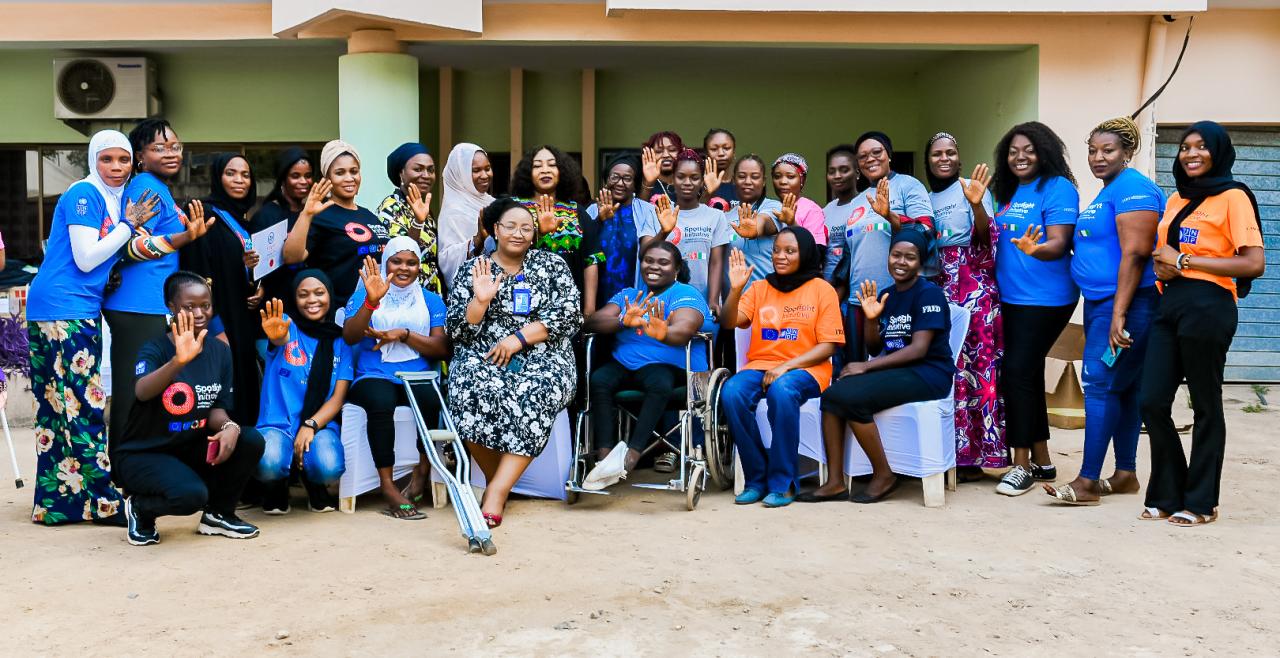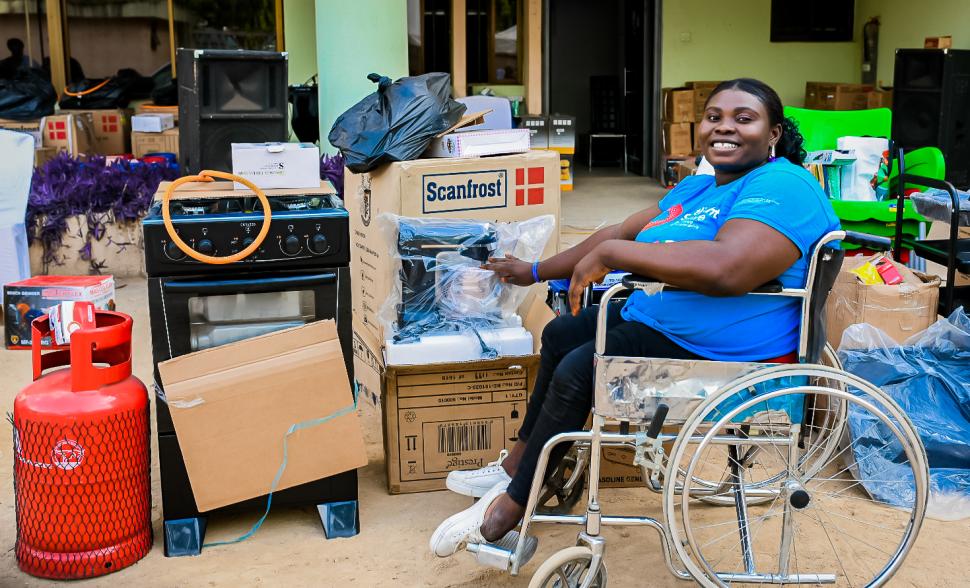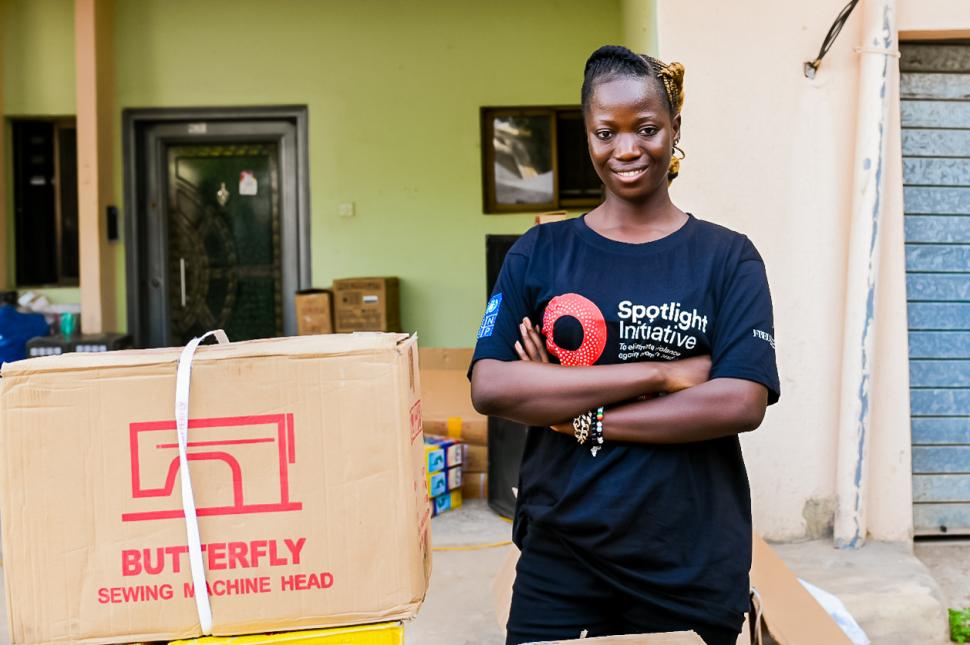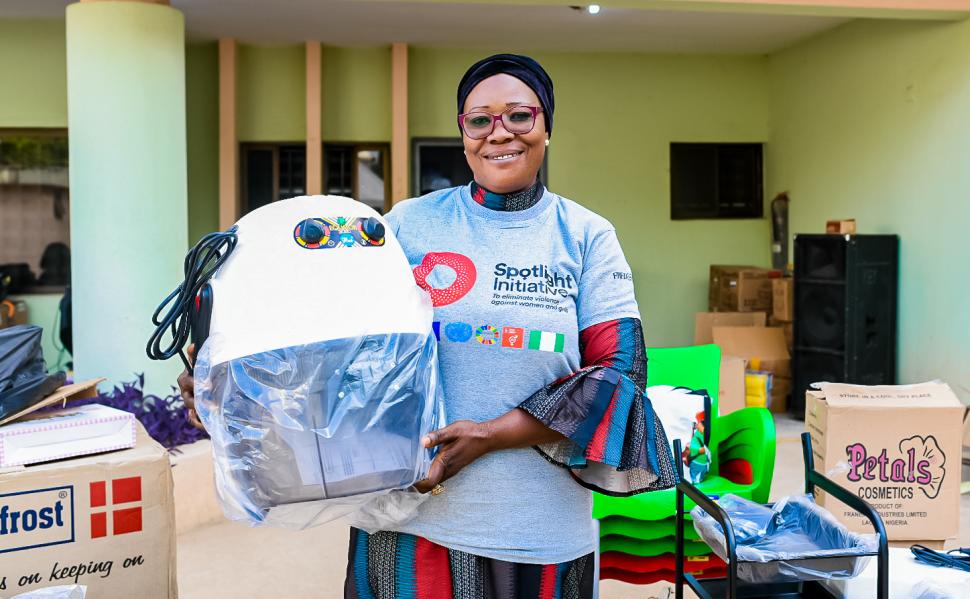In Nigeria, vulnerable women and girls go from survivors of violence to business owners

ABUJA/LAGOS, Nigeria - Despite making up half of the population, women in Nigeria continue to be under-represented in political positions and businesses, with only 20 per cent of enterprises owned by women. To close this gap, women must be able to access skills training, knowledge and funding to start small businesses that sustain their livelihoods.
Spotlight Initiative, through UNDP, has been providing support to women to start their own businesses, with a particular focus on women living with disabilities. Globally, women and girls with disabilities are at least two to three times more likely than other women to experience violence. An independent income can give women greater control over their lives and help to reduce that vulnerability.
Through the Spotlight Initiative livelihood pathway programme, which includes financial literacy, business registration, seed grants and start-up kits, many women have become small business owners.
By mid-2023, more than 288 vulnerable women and girls who are survivors of gender-based violence had graduated from the livelihood pathway integration programmes in Abuja and Lagos.
Below, two graduates share their stories.
HAPPINESS
Happiness, 18, was orphaned at the age of 14 when her mother passed away. Following her mother’s death, she fled her hometown of Kaduna to avoid being married off to a much older man by her uncles.
Vulnerable and alone, she was sexually abused. The National Agency for the Prohibition of Trafficking in Persons (NAPTIP) became aware of her case after she made a desperate call for help on a radio programme. The organization offered her shelter and she underwent therapy to help her recover from the ordeal.
"That was a difficult time for me; I was going through a lot of traumas, and I was depressed,” says Happiness.
Happiness benefited from fashion design training.
"I've always wanted to learn how to sew. I am grateful for the training because it allowed me to channel my attention away from other concerns. Whenever I am sewing on the machine, I am always happy,” she says.
"I am not waiting for a shop; I have already begun sewing and selling dresses at National Agency for the Prohibition of Trafficking in Persons (NAPTIP) and my shelter. I'm now teaching some of the shelter girls how to sew."
Happiness plans to open a shop, expand the business and sponsor herself through school.
IYABO
For Iyabo, having a livelihood means hope. She describes the training as a “big and new beginning”.
Iyabo is a single mother of two young daughters with sickle cell disease, a blood disorder that affects hemoglobin. Unable to pay for their healthcare, Iyabo sought help from the National Human Rights Commission (NHRC) to help her meet her children's needs. The NHRC provided her with the opportunity to complete livelihood training.
"I enjoyed my training, I met other women who had experienced violence, and we found a support system for each other. With the start-up kit, I am ready to go big," she says.
Lyabo plans to use her new hairdressing skills to earn a living and provide for her children.
Originally published on UNDP.



